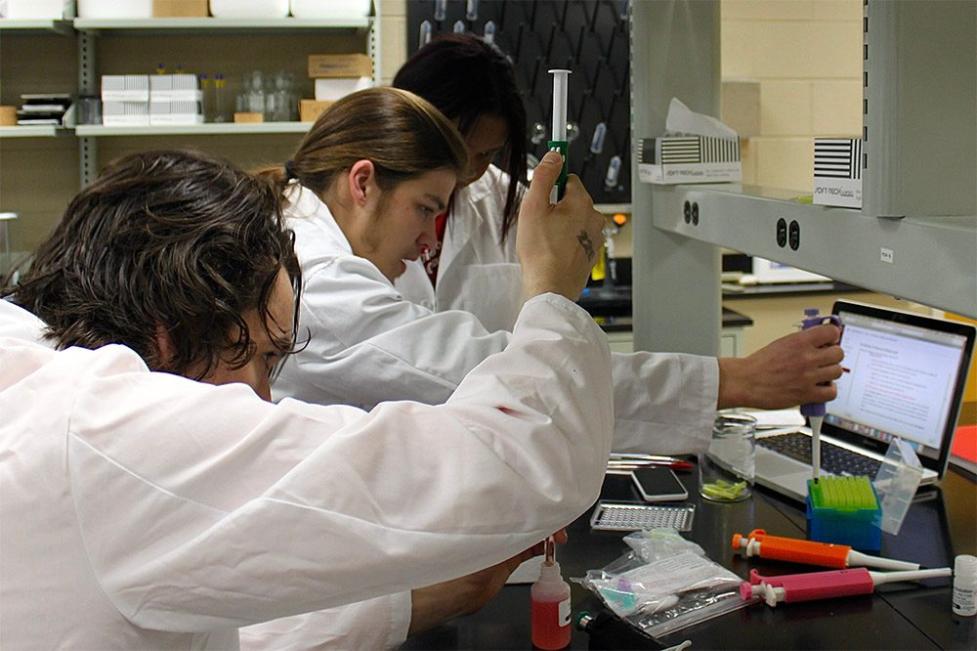How Can I Prepare for a Successful Career in Neuroscience?
Neuroscience is the scientific study of the brain and nervous system. It is a rapidly growing field that offers exciting opportunities for those interested in understanding how the brain works and how it controls our thoughts, feelings, and behaviors.

If you are interested in pursuing a career in neuroscience, there are a few things you can do to prepare yourself for success.
Educational Background
A strong foundation in science and mathematics is essential for a successful career in neuroscience. You should take as many science and math courses as possible during high school and college.
Recommended undergraduate degrees for neuroscience include neuroscience, biology, psychology, chemistry, or related fields. During your undergraduate studies, you should also gain research experience in neuroscience. This can be done through internships, summer research programs, or research assistantships.
After completing your undergraduate degree, you will need to choose a graduate program (Master's or Ph.D.) in neuroscience. When choosing a graduate program, it is important to select one that aligns with your personal research interests and career goals.
Research Experience

Research experience is essential for a successful career in neuroscience. Research experience will allow you to learn the latest techniques and methodologies used in neuroscience research. It will also help you to develop critical thinking, problem-solving, and analytical skills.
There are many different ways to gain research experience in neuroscience. You can apply for internships, summer research programs, or research assistantships. You can also volunteer to work in a neuroscience laboratory.

When applying for research opportunities, it is important to tailor your application to the specific position. Be sure to highlight your relevant skills and experience, and explain why you are interested in the research project.
Skills And Qualities
In addition to a strong educational background and research experience, there are a number of skills and qualities that are essential for a successful career in neuroscience. These include:
- Critical thinking and problem-solving skills
- Analytical skills and attention to detail
- Strong communication and interpersonal skills
- Ability to stay updated with the latest advances and discoveries in neuroscience
Neuroscientists must also be able to work independently and as part of a team. They must be able to communicate their research findings effectively to both scientific and non-scientific audiences.
Networking And Collaboration
Networking is essential for a successful career in neuroscience. Attend conferences, workshops, and seminars to meet other neuroscientists and learn about the latest research findings. Join professional organizations and participate in online forums and communities to stay connected with the neuroscience community.
Collaboration is also important in neuroscience. Many research projects are conducted by teams of scientists from different disciplines. Neuroscientists often collaborate with psychologists, engineers, and computer scientists to solve complex problems.
Career Opportunities
There are a variety of career opportunities available to neuroscientists. Neuroscientists can work in academia, industry, government, and non-profit organizations.
In academia, neuroscientists can teach and conduct research at colleges and universities. In industry, neuroscientists can work for pharmaceutical companies, biotechnology companies, and medical device companies. In government, neuroscientists can work for the National Institutes of Health (NIH), the Food and Drug Administration (FDA), and the Centers for Disease Control and Prevention (CDC).
Non-profit organizations that employ neuroscientists include the American Academy of Neurology, the Society for Neuroscience, and the Brain and Behavior Research Foundation.
A career in neuroscience is a rewarding and challenging one. If you have a passion for understanding the brain and nervous system, then a career in neuroscience may be right for you.
With hard work and dedication, you can achieve your goal of becoming a successful neuroscientist.
YesNo

Leave a Reply